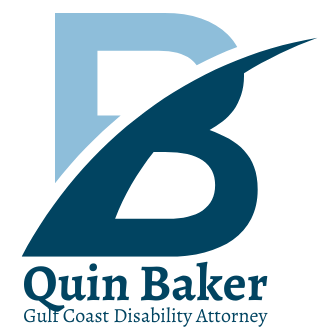Social Security Disability Attorney in Pensacola, FL
If your Social Security claim has been denied, don’t give up hope. Call a Social Security attorney at Baker & Baker PLLC right away. We’re proud to help our clients get the financial assistance they need.
Whether you’ve worked all your life until a recent accident or a disability has held you back for years, we can help. You don’t need a work history to show that you can’t work. You just need a dedicated Social Security attorney in Pensacola, Florida who also serves surrounding areas.
You only have 60 days after being denied to file an appeal, so call 850-433-0888 right away.
Types of Injuries and Conditions that Qualify for Social Security Disability
If you suffer from a disabling injury or have a serious medical condition, you may be facing a difficult and stressful time. In addition to dealing with physical and emotional pain, you may also be challenged by mounting medical bills and the loss of wages.
The Social Security Administration (SSA) through the Social Security Disability (SSD) program can provide monthly income and medical benefits to people that suffer with disabling medical conditions. There are two programs – Social Security Disability Insurance (SSDI) and Supplemental Security Income (SSI) that provide monthly income and medical benefits. Both SSDI and SSI’s disability eligibility criteria require that you have a serious medical condition that will last at least 12 months or is life-threatening and prevents you from earning a regular income. SSDI and SSI eligibility criteria differ in the amount of past work history needed.
At Baker & Baker, our experienced Social Security disability attorneys understand the SSA’s listing of injuries and medical conditions that qualify for SSD benefits is confusing and complex. Our law firm can help you navigate this confusing disability system and assist you with submitting a comprehensive initial application for benefits that addresses the SSDI and/or SSI eligibility criteria. We will also assist with a comprehensive appeal if your claim was wrongfully denied. The sooner you contact us, the faster we can work toward getting you the benefits you deserve.
Musculoskeletal Conditions
There were roughly 760,000 awards for SSD benefits to disabled people by the SSA in 2019. Of those, more than one-third (37.7%) suffer from a condition of the musculoskeletal system and connective tissue. Some of the more common medical conditions that can qualify for SSDI and/or SSI benefits are:
- Back pain (degenerative disc disease, scoliosis, spinal disorders, or ruptured disc) – These conditions can impact a person’s ability to walk, sit, and carry out normal work duties. They can also impact bodily functions, and the accompanying pain can be severe.
- Connective tissue disorders (arthritis) – People with rheumatoid arthritis and other connective tissue disorders can experience significant limitations that will qualify them for disability benefits.
- Fibromyalgia – This is a severe, and often chronic, disorder characterized by widespread pain in the muscles, tendons, and joints.
Mental Disorders
The second most common type of disorder to receive approval for SSD benefits are different types of mental disorders. In 2019, 13.3% of awards went to applicants struggling with mental conditions such as:
- Psychotic disorders (schizophrenia) – A person with a psychotic disorder that is characterized by hallucinations, delusions, or disorganized thinking may qualify for SSD benefits.
- Mood disorders (depression, anxiety, bipolar disorder, panic attacks) – To qualify for SSD, the mood disorder must be severe and long-lasting enough that it creates a barrier to gainful employment.
- Autism or Asperger’s syndrome – People with Autism spectrum disorders can qualify for SSD if they can medically document significant deficits in concentration, self-managing, and the ability to communicate.
- Post-traumatic stress disorder (PTSD) – A person with this type of anxiety disorder could qualify for benefit if they can thoroughly document the ways this condition limits their activities.
Cardiac and Circulatory Disorders
Roughly 10% of all applicants that are awarded benefits suffer from various circulatory disorders. These are issues involving blood flow to the heart and the remainder of the body. Examples include:
- Coronary artery disease – Coronary artery disease involves the buildup of plaque in the coronary arteries that causes them to narrow. It is the most common cause of reduced oxygen supply and blood to the heart, which can lead to a person’s reduced ability to function.
- High blood pressure (hypertension) – If high blood pressure is not treated and managed properly, it can lead to other serious issues such as heart disease and stroke. A person with high blood pressure that is applying for SSD must meet a long list of criteria for approval.
- Angina – Angina, or chest pain, is one of the most common cardiac disorders. Having this alone isn’t enough to qualify for SSD, but it can be combined with other cardiac and circulatory disorders to help an applicant qualify.
- Congenital heart defects – A person who must undergo surgery for a congenital heart defect may qualify for SSD if their condition will last for at least 12 months.
Neurological Disorders
Other common types of conditions that qualify for SSD benefits are various neurological and sensory disorders. Some examples include:
- Parkinson’s Disease – If you have been diagnosed with Parkinson’s Disease and are unable to work due to physical or other functional limitations, you may qualify for SSD benefits.
- Sciatica – The compression of the sciatic nerve can be incredibly painful and debilitating. The SSA will weigh your limitations in light of your diagnosis and treatment history.
- Chronic fatigue syndrome (CFS) – CFS is also referred to as Myalgic Encephalomyelitis (ME), and it is a complex multi-system disorder that results in prolonged fatigue. You may qualify for SSD benefits if you can fully document your limitations.
- Blindness – The SSA has special disability rules that apply to people with limited vision and blindness. If you meet certain criteria, you can receive benefits.
Neoplasms (Cancer)
Neoplasms are tumors caused by cancerous or non-cancerous disorders. People with certain types of cancer, such as lung cancer or mesothelioma, are often able to prove disability according to the SSA’s criteria.
Other Conditions
This list is just a sampling of the conditions that will qualify for SSD benefits. Several other conditions commonly qualify. Some examples are genitourinary system disorders (such as kidney disease), autoimmune disorders (such as lupus), respiratory system disorders (such as COPD and emphysema), and digestive system disorders (such as irritable bowel syndrome or Crohn’s disease).
Should you hire a disabilities attorney?
Is this your first time filing for Social Security? The process can feel daunting, but Baker & Baker PLLC can help. A disabilities attorney can walk you through the process, step by step. Our skilled attorneys can help you:
- Submit your application correctly
- Avoid unnecessary setbacks
- Advocate for your best interest
You won’t pay us unless you win, so there’s no reason to wait. Schedule an appointment with an accomplished disabilities attorney at our Pensacola, FL office today, he also serves all surrounding areas.

